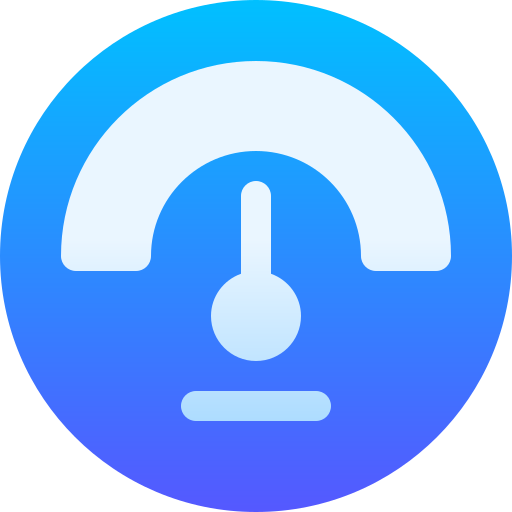Guides
Unearthing Digital Gold: A Beginner's Guide to Bitcoin Mining
In the ever-evolving landscape of cryptocurrency, Bitcoin stands as the trailblazer, captivating the attention of investors, technologists, and enthusiasts alike. While many are drawn to the allure of trading Bitcoin on exchanges, there exists another method of acquiring this digital gold: mining.
Bitcoin mining is the process by which new Bitcoins are created and transactions are validated on the blockchain. In this beginner's guide, we'll delve into the world of Bitcoin mining, exploring its intricacies, challenges, and rewards.
Understanding Bitcoin Mining
At its core, Bitcoin mining is the process of adding transaction records to Bitcoin's public ledger of past transactions, known as the blockchain. Miners use powerful computers to solve complex mathematical puzzles that validate and confirm transactions.
These transactions are then grouped into blocks, which are added to the blockchain in a chronological order. In return for their computational efforts, miners are rewarded with newly minted Bitcoins and transaction fees.
The Mining Process
Bitcoin mining involves several key components:
Mining Hardware: Specialized hardware, such as ASIC (Application-Specific Integrated Circuit) miners, is used for Bitcoin mining due to its efficiency in performing the required computations. In the early days, miners could use regular CPUs or GPUs, but the increasing difficulty of mining has made specialized hardware a necessity.
Mining Software: Miners utilize mining software to connect their hardware to the Bitcoin network and participate in the mining process. Popular mining software includes CGMiner, BFGMiner, and EasyMiner, among others.
Mining Pools: Given the competitive nature of Bitcoin mining, individual miners often join mining pools to combine their computational resources and increase their chances of successfully mining a block. Upon successfully mining a block, the rewards are distributed among the members of the pool based on their contributions.
Challenges and Considerations
While the allure of Bitcoin mining can be enticing, it's essential to recognize the challenges and considerations involved:
Difficulty Adjustment: The Bitcoin network dynamically adjusts the difficulty of mining to ensure that blocks are mined approximately every 10 minutes. As more miners join the network and computing power increases, the difficulty adjusts accordingly, making it harder to mine Bitcoin.
Electricity Costs: Mining Bitcoin requires significant computational power, which translates to high electricity consumption. Miners must carefully consider electricity costs to ensure that the potential rewards outweigh the expenses.
Hardware Investment: Investing in mining hardware can be costly, and technological advancements continually render older hardware obsolete. It's crucial to conduct thorough research and consider factors such as hash rate, power efficiency, and upfront costs before investing in mining equipment.
Rewards and Opportunities
Despite the challenges, Bitcoin mining presents lucrative opportunities for those willing to navigate its complexities:
Block Rewards: Miners are rewarded with a fixed number of Bitcoins for successfully mining a block, currently set at 6.25 BTC per block. Additionally, miners earn transaction fees associated with the transactions included in the block.
Long-Term Investment: Some miners view Bitcoin mining as a long-term investment strategy, accumulating Bitcoin through mining and holding onto it as a store of value.
Technological Innovation: The process of Bitcoin mining drives technological innovation in the field of hardware and software development, leading to advancements that benefit not only miners but the broader cryptocurrency ecosystem.
Bitcoin mining remains a fundamental aspect of the cryptocurrency ecosystem, playing a crucial role in securing the network and validating transactions. While it may seem daunting at first, with the right knowledge, resources, and determination, individuals can participate in this digital gold rush. Whether as a hobbyist or a serious investor, Bitcoin mining offers a gateway into the fascinating world of cryptocurrencies, where innovation and opportunity abound.
Latest Articles
-
Top Bitcoin Wallet Addresses 2024 (Bitcoin Richlist) : Insights into Crypto Wealth Distribution
-
What is the Coinbase hex in a Bitcoin block, and how is it structured?
-
Bitcoin Scams: Protecting Yourself from Fraud
-
Bitcoin Halving: A Comprehensive Guide to Understanding its Significance, Impact, and Implications
-
Exploring Bitcoin Forums: A Hub for Community, Knowledge, and Discussion
-
What is Bitcoin Block Weight?
-
What is Bitcoin Halving?
-
What is Bitcoin Block Difficulty?
-
Demystifying Bitcoin Transactions: How Does Sending Bitcoin Work?
-
Bitcoin Whales: Who They Are and How They Affect the Market?
-
How to use a Bitcoin blockchain explorer?
-
Bitcoin Halving Details
-
What is the transaction per second (TPS) rate of the Bitcoin network?
-
What factors contribute to the increase in bitcoin blockchain size over time?
-
Safeguarding Your Digital Fortunes: Tips for Securing Bitcoin Holdings
-
Unearthing Digital Gold: A Beginner's Guide to Bitcoin Mining
-
What is a Crypto Airdrop?
-
Tracking Crypto Whales: Understanding Their Impact on the Market
-
Crypto whale tracking : WhaleAlertz.com. Find Bitcoin Whales, Transactions, Blocks, Alerts
-
How does the Bitcoin halving event impact the supply of new bitcoins?
-
Bitcoin Genesis Block and the Enigma of Satoshi Nakamoto
-
What are Bitcoin whales and why are they important in the cryptocurrency market?
-
How does Bitcoin work?
-
What is a whale alert?
-
Is Bitcoin halving period a good time to invest in the crypto asset?



.png)




